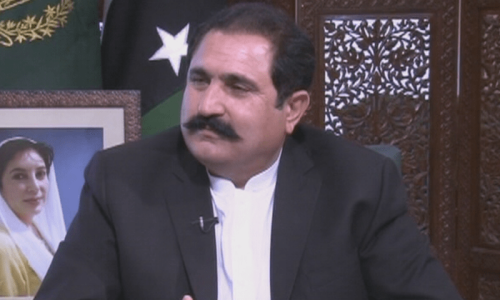Real estate plays the role of a bogeyman in Pakistan’s economy because of its large-scale monetary ramifications, various manipulations, overpricing and artificial growth.
Prevailing speculation, the lack of transparency and regulation in the sector has resulted in the increase of significant asset-price bubbles and their volatile nature. Lack of reliable data has also made it difficult for investors in terms of making informed decisions.
The real estate of Pakistan, like the casino sector, has enhanced the gap between intrinsic value and market value. It has resulted in the creation of pricing bubbles which have been visible for some time.
The rising prices, consequently, have created an affordability gap because the cost of housing has outpaced the wealth growth of the middle class. The information cascade is creating a pricing premium which further boosts price bubbles and artificial growth in the real estate sector. As a result, the widening gap between the purchasing power of the middle class and house prices has been increasing drastically.
The market is driven by speculative investments, information cascades, and media conditioning under state patronage
Data from State Bank shows that Pakistan received $2.45 billion and $2.61bn per month in remittances in 2021 and 2022, respectively. It also shows that 45-50 per cent of this amount had been invested in the real estate market.
Expatriates use information cascading to make decisions about real estate investments in Pakistan. In economic literature, information cascades can be defined as those decisions made by people based on the actions and decisions of the people around them. The actions of others act as guidance for such people who want to avoid the uncertainty of personal decisions.
Similarly, expatriates follow the action of their peers and associated personnel. Information includes the sense of security and growth, which is further manifested through housing societies and their prestige, social amenities, institutional backing etc.
These signals can have a significant impact on real estate prices. For instance, Access to the best educational institutes, health care centres and shopping malls in the neighbourhood of any housing society will likely increase real estate prices as compared to the area with limited infrastructure and amenities.
Various housing societies have agreements with renowned universities, schools, colleges and hospitals to ensure this prospect by providing them with lands. They also use several marketing strategies, including using social media and other online sources to advertise the names and visual representations of universities, hospitals and schools.
In addition to social amenities, the reputation of well-known real estate developers, in contrast to less-known developers, is also responsible for higher prices. The presence of prominent developers like the Defence Housing Society and Bahria Town can create a sense of trust and reliability among potential buyers and investors. Buyers and investors are willing to pay a premium for properties in these areas.
Institutional naming, a powerful marketing tool, contributes to the pricing premium. It can be used to increase the perceived value of any property. For example, if a property is associated with a prestigious institution, it can generate a higher price than one without any institutional association.
In the case of institutional naming, buyers can experience a sense of social security as their property is associated with a well-reputed institution. Additionally, it can influence the perceptions and desirability of neighbouring infrastructure, generating higher prices.
Though using the name of any government institution without their respective permission is illegal, most of the housing societies in Islamabad use the name of government institutes. Examples are projects like FIA [Federal Investigation Agency] Park Enclave Housing Scheme, Ministry of Interior Employees Cooperative Housing Society, National Assembly Employees Cooperative Housing Society and Supreme Court Employees Housing Scheme etc.
Most of these institutions act as regulatory authorities for issuing no-objection certificates (NOC) to housing societies. This seemingly legal paradox creates a pricing premium, a sense of security and prestige. These prominent factors lead to artificial growth and a price boom in the market.
Resultantly, the housing market in Pakistan has seen a financial boom in recent years, but it is important to consider that this growth is artificial in its nature. The market is not driven by organic economic growth but rather through factors like speculative investments, information cascades, social media monitoring and electronic media conditioning under the patronage of the state using institutional naming.
Abolishing environmental aspects during construction and without NOC approvals are also factors that are not for the country’s long-term economic prospects. This situation shows a probability that the market is at a strong risk of crashing in case of dried foreign investments or if the government decides to introduce strict and controlled policies.
The gap between investors and the real estate market end users is widening. On the one hand, rising property values promote investor interest by allowing them to expand their investments into multiple properties.
On the other hand, there is a severe housing affordability crisis in Pakistan, as more than 70pc of the population cannot afford a decent house. Thus, this slogan of ‘buying my own house’ has turned out to be a bogeyman for middle-class end users and, ultimately, an economic bogeyman for the state.
The writer is an Assistant Professor (PhD Financial Economics) at the National University of Modern Languages, Islamabad
Published in Dawn, The Business and Finance Weekly, February 20th, 2023














































Dear visitor, the comments section is undergoing an overhaul and will return soon.